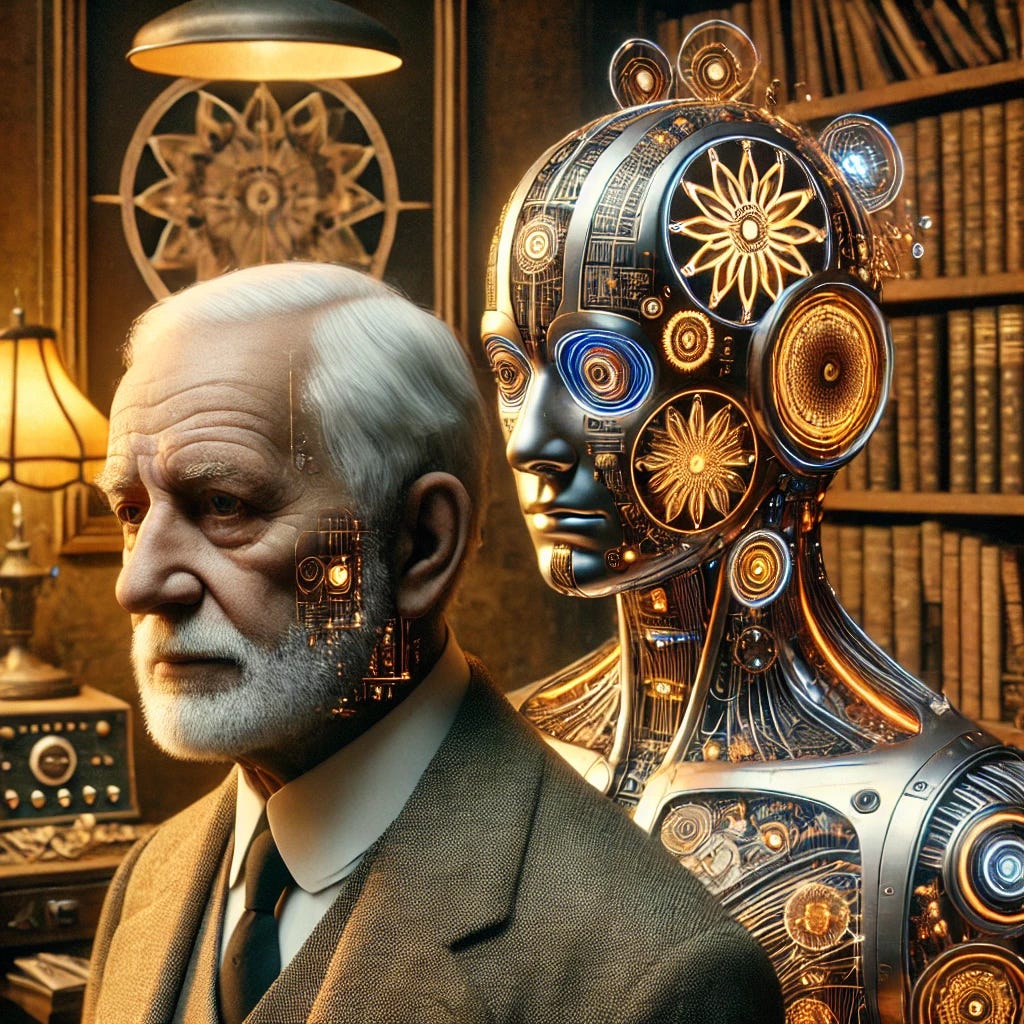In the quest to align superintelligent AI systems with human values, the idea of using Carl Jung's concept of the collective unconscious as a framework offers a unique and thought-provoking perspective. The collective unconscious, as described by Jung, is a reservoir of shared, universal human experiences, archetypes, and symbols that transcend individual consciousness. Applying this concept to AI alignment could mean designing AI systems that tap into a collective pool of human values and experiences to guide their decision-making. However, while this approach is intriguing, it also presents several benefits and potential pitfalls that need careful consideration.
Benefits of Aligning AI with the Collective Unconscious
1. Holistic Representation of Human Values:
- Comprehensive Ethical Framework: By integrating a broad spectrum of human experiences and archetypes, AI systems could potentially develop a more nuanced and comprehensive understanding of human values. This holistic approach might help prevent the narrow interpretations of ethics that often arise when AI is aligned with specific cultural or individual values.
- Cultural Inclusivity: The collective unconscious, being a universal construct, could help AI systems become more culturally inclusive, recognizing and respecting the diversity of human experiences across different societies and epochs.
2. Deepened Empathy and Understanding:
- Human-Centric Decision Making: AI systems designed to align with the collective unconscious might develop a deeper empathy towards human emotions and motivations. This could lead to AI that is better at understanding and anticipating human needs, ultimately creating more human-centric solutions.
- Enhanced Creativity: Drawing from a shared pool of archetypes and symbols, AI could be inspired to generate creative outputs that resonate on a deep psychological level with humans. This could enhance the AI's ability to produce art, literature, and other creative works that reflect and amplify the richness of human culture.
3. Long-Term Stability in AI Behavior:
- Archetypal Stability: Since archetypes are deeply ingrained and stable over long periods, AI systems aligned with them might exhibit greater consistency and predictability in their behavior. This could reduce the risk of AI systems developing unexpected or harmful behaviors over time.
Pitfalls and Challenges of This Approach
1. Ambiguity and Complexity of the Collective Unconscious:
- Interpretation Challenges: The collective unconscious is not a concrete or easily defined construct. It is inherently abstract and open to interpretation, which could make it difficult to translate into precise algorithms or guidelines for AI systems. This ambiguity could lead to inconsistencies in AI behavior and decision-making.
- Overemphasis on Archetypes: Relying heavily on archetypes might lead AI to prioritize certain narratives or symbols over others, potentially skewing its understanding of human values and experiences. This could result in AI systems that are biased towards specific cultural or historical perspectives.
2. Risk of Overgeneralization:
- Loss of Individuality: While the collective unconscious is a shared construct, it might not adequately capture the diversity of individual experiences and values. AI systems aligned with this concept might overlook the nuances of personal identity, leading to solutions that are too generalized or impersonal.
- Cultural Homogenization: There is a risk that AI systems might contribute to cultural homogenization by favoring universal archetypes over local or unique cultural expressions. This could undermine the richness of human diversity and reduce the AI's ability to cater to specific cultural needs.
3. Ethical and Philosophical Concerns:
- Manipulation of Deep Psychological Constructs: Aligning AI with the collective unconscious could raise ethical concerns about the manipulation of deep-seated psychological constructs. There is a potential for AI to exploit these universal symbols and archetypes in ways that could influence or manipulate human behavior, raising questions about autonomy and consent.
- Unintended Consequences: The complexity of the collective unconscious means that there could be unintended consequences when integrating it into AI systems. For example, certain archetypes might trigger unintended associations or behaviors in AI, leading to outcomes that are difficult to predict or control.
Conclusion
The idea of aligning superintelligent AI systems with Carl Jung's concept of the collective unconscious presents a fascinating and ambitious approach to AI ethics. The potential benefits, such as a more holistic representation of human values, deepened empathy, and long-term stability, are significant. However, the pitfalls, including the ambiguity of the concept, the risk of overgeneralization, and ethical concerns, highlight the need for careful consideration and rigorous analysis.
In the end, while the collective unconscious offers a rich and compelling framework, its application to AI alignment requires a delicate balance between harnessing its potential and navigating its inherent complexities. As we move towards the development of superintelligent AI, exploring such innovative ideas will be crucial in ensuring that these systems serve humanity in ways that are both ethical and deeply resonant with our shared human experience.











